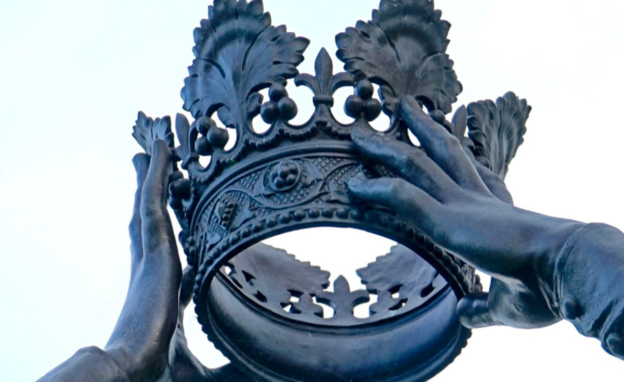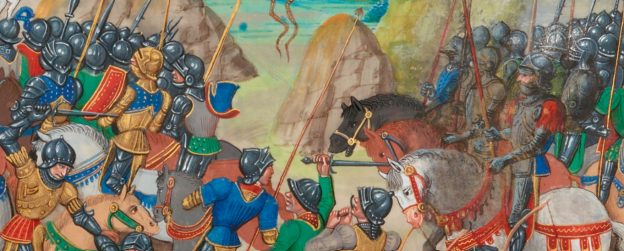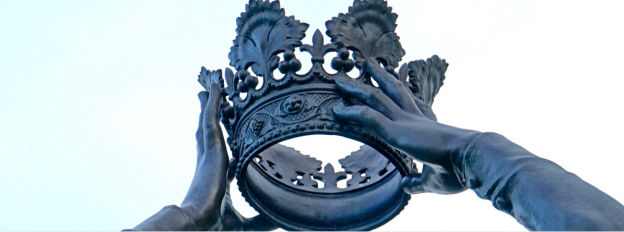There seems a popular idea today, if people acknowledge God’s existence, that God will weigh our good and bad deeds on a scale and let us in the pearly gates if the good outweighs the bad. Perhaps from vague memories of studying Ancient Egypt in Social Studies.
Unfortunately for this popular idea, it is wrong. God desires obedience, not sacrifice. He wants us to obey him, not our own desires. That truth, however unpalatable, fell on the Amalekites and on Saul in our passage. The consequences for disobedience are judgement, either on ourselves or on someone righteous in our place.
After rendering the judgement from history, the first book of Samuel picks up in chapter 15 with the story of Saul once again. This time, however, Saul will start to become a minor character. The reason is for his disobedience of God’s commands.
God spoke to Saul through Samuel and commanded him to devote the Amalekites to destruction; everything and everyone wiped out completely (vv.1-3). This was due to their mistreatment of God’s People (and thus, God) when Israel left Egypt, which was indicative of their sinful culture. Like all individuals and cultures which disobey God, judgement is the inevitable end.
Saul dutifully assembled a strong military force and attacked the Amalekites. The Kenites, who at that point were living in the area, were given permission to leave since they had been good to Israel. Then, Israel attacked Amalek (vv.4-7).
But all was not well. Saul captured their king and brought judgement on the Amalekites, but spared their king and the best of the flocks (vv.8-9). Only what they disliked was destroyed. This was disobedience to God, idolatry, and it was unbelief in God’s ability to see them act!
Of course, God did see them. God told Samuel “I regret that I have made Saul king” (v.11) as a result, not because God changes his mind or exerts no control over events, but because when we act in sinful ways we experience God’s grief over sin. This verse reminds us that God is eternally grieved by sin and lack of obedience. It should lead us to anger and sorrow, as it did Samuel (v.11).
While Saul was strolling back to Israel feeling great about himself, Samuel went out the next morning to meet and confront him (v.12). To Saul’s claim that he had obeyed God, Samuel asked “What then is this bleating of the sheep in my ears and the lowing of the oxen that I hear?” (vv.13-14)
Saul responded that the best of the animals were kept for God, and the rest destroyed (v.15). This motive was questionable, since the Israelites offering these thank offerings would get to share in eating the food.
Samuel then addressed Saul based on God’s words to him the previous night, pointing out that ultimately God had put him in his position, and yet Saul had not listened to God (vv.16-19). Saul again claimed obedience, having only brought the king home alive along with some animals to sacrifice to God (vv.20-21).
So Samuel spoke to Saul a third time, asking rhetorically if God has “as great delight in burnt offerings and sacrifices, as in obeying the voice of the LORD?” (v.22). For God, “to obey is better than sacrifice, and to listen than the fat of rams” (v.22).
As far as God is concerned, rebellion against his commands is as evil as witchcraft, and arrogantly presuming to modify God’s commands is idolatry, since it places yourself in the position of God. For these reasons, God rejected Saul as king (v.23).
There were two peoples facing judgement in this passage, Saul and the Amalekites. Both were idolaters and disobeyed God’s commands. While the idea of wiping out an entire people jars us today, and encourages some unbelievers to reject God in self-righteous indignation, we should not do the same. Everyone is guilty and has fallen short of God’s glory. All deserve judgement.
Though Christ’s arrival announced the year of God’s favour, it also announced “the day of vengeance of our God” (Isaiah 61:1-3, Luke 4:18-19). Some nations who disobey God experience God’s judgement now as a foretaste of the great judgement to come. Likewise, churches which remake God’s laws to suit them are liable to find the same judgement falling upon themselves. We must take sin and obedience seriously, and not rewrite God’s words to suit our preferences.
While we expect judgement for God’s enemies, let us not do so with pride. Instead, let us remember we too are people of unclean lips (Isaiah 6) whose righteousness is like filthy rags (Isaiah 64:6). Thankfully, we find that in Jesus who lived perfectly obediently and took the judgement of God on himself for us. We are not better, just forgiven.
Instead, God’s holiness, his coming judgement, and our forgiveness in Christ should encourage us to snatch others from the fire, through proclaiming the Gospel, and living obediently according to God’s Will. Because it is better to obey than to sacrifice.




